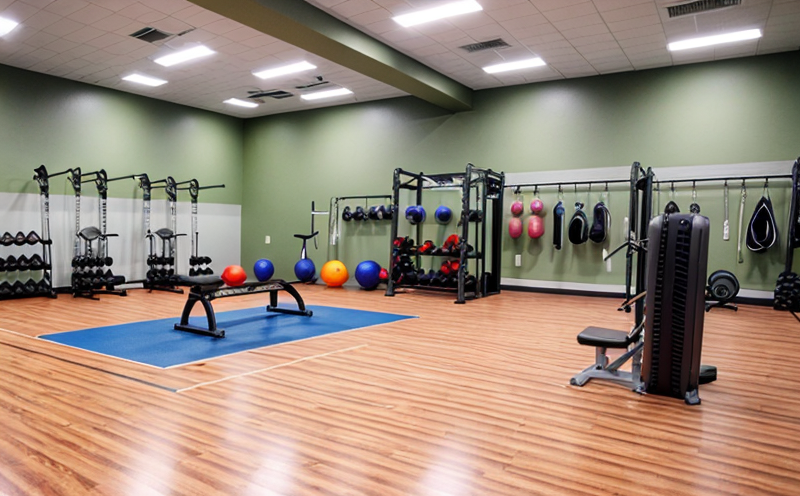Handlebar Strength Testing in Fitness Bikes
In the realm of consumer products and product safety testing, particularly within the sector of sporting goods and fitness equipment, handlebars are a critical component. The strength and durability of handlebars directly impact the user's experience and overall safety during exercise. This service focuses on ensuring that handlebars in fitness bikes meet stringent safety standards and perform as expected under various stress conditions.
The testing process involves several key steps: specimen preparation, loading configurations, and precise measurement techniques. Specimens are typically selected based on the specific model of fitness bike being tested. The primary goal is to simulate real-world usage scenarios that could potentially cause failure or injury. This includes both static load tests and fatigue tests.
Static load testing ensures that the handlebar can withstand a predetermined weight without deformation or breakage, simulating conditions such as a rider's body weight plus additional loads. Fatigue testing replicates repeated use over time to check for any potential weaknesses that could lead to failure during routine workouts. The standard used in these tests is ISO 4210, which provides comprehensive guidelines on the structural integrity and performance of bicycles.
Once testing is complete, detailed reports are generated highlighting the results of each test. These reports include data from force measurements, deflection readings, and any observations made during the testing process. Compliance with international standards ensures that products meet regulatory requirements and provide peace of mind to consumers.
The importance of this service cannot be overstated in terms of consumer protection. By conducting thorough strength tests on handlebars, manufacturers can identify potential weaknesses early in the product development cycle. This allows for necessary modifications before mass production begins, ultimately leading to safer products reaching market shelves. Additionally, successful compliance with these rigorous tests enhances brand reputation and trust among consumers.
Customer Impact and Satisfaction
- Better Product Quality: Customers receive high-quality fitness bikes that are built to last longer and perform better under various conditions.
- Increased Safety: By ensuring handlebars meet strict safety standards, accidents due to structural failures are reduced significantly.
- Enhanced Brand Reputation: Compliance with international standards demonstrates commitment to quality and safety, enhancing brand image.
Why It Matters
The reliability of handlebars in fitness bikes is crucial because they play a vital role in supporting the rider during exercises. A strong handlebar not only provides comfort but also ensures that the user remains securely positioned throughout their workout routine. Inadequate strength can lead to accidents, which could result in injuries ranging from minor discomforts like sore hands to more severe issues such as broken bones.
Moreover, fitness equipment manufacturers have a responsibility towards consumers to provide safe and reliable products. This service helps them meet this obligation by providing accurate data on the structural integrity of handlebars through rigorous testing procedures. Compliance with international standards ensures that these tests are conducted consistently across different regions, thereby maintaining consistency in quality.
For quality managers and compliance officers within companies operating in this sector, understanding the importance of such tests is essential for ensuring regulatory compliance. R&D engineers benefit from knowing how these tests contribute to improving product design and functionality. For procurement teams involved with sourcing components like handlebars, this service offers valuable insights into selecting suppliers who adhere strictly to best practices.
Competitive Advantage and Market Impact
In today's competitive market where brand reputation plays a significant role in consumer choice, meeting or exceeding industry standards sets companies apart from their competitors. When fitness bike manufacturers can demonstrate that their products have passed robust handlebar strength tests, it communicates to potential customers that they prioritize safety and quality.
Such demonstrations of commitment to excellence help build long-term relationships with loyal customer bases. Furthermore, achieving compliance with international standards like ISO 4210 opens up opportunities for exporting products internationally without facing additional hurdles related to local regulations. This not only expands market reach but also boosts sales potential significantly.
From a broader perspective, ensuring robust handlebar strength contributes positively towards overall public health by reducing instances of sports-related injuries associated with poorly designed or manufactured fitness equipment. As more consumers become aware that reputable brands are committed to producing safe and reliable products, demand for these items increases, driving market growth further.





